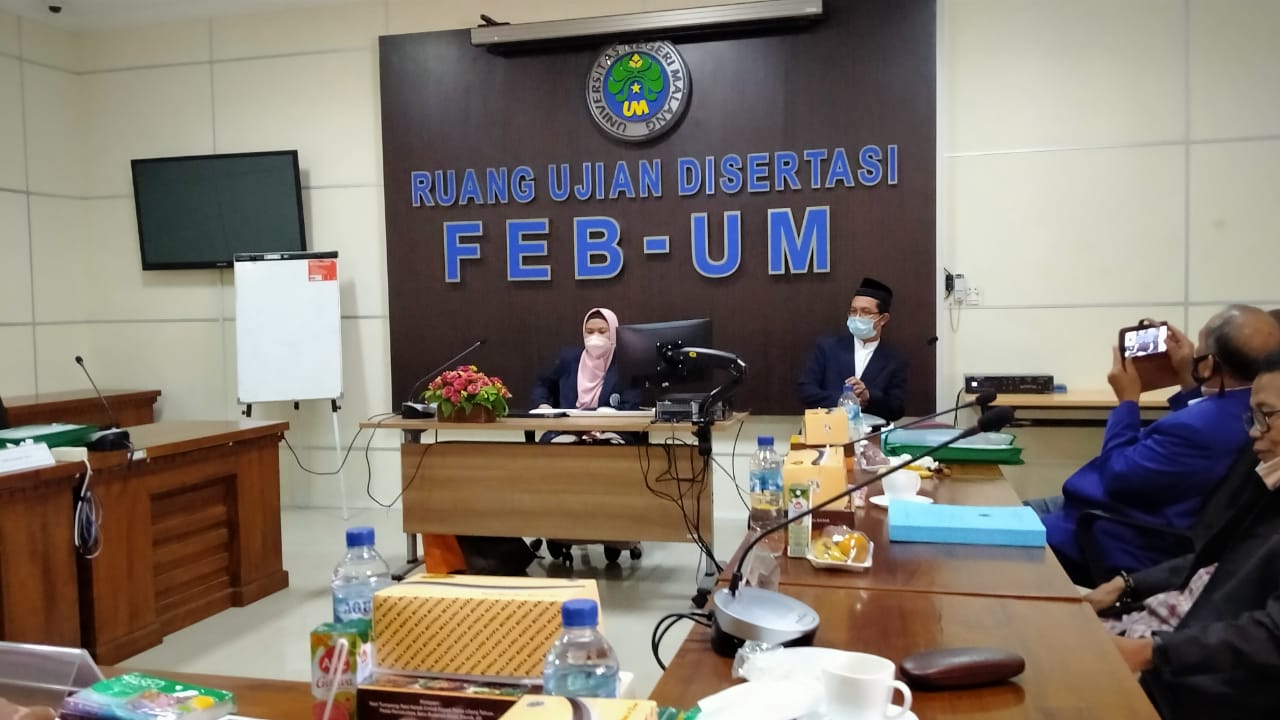You are here
Populist Economy Could be Taught In High Schools

Lecturer of Economics Education Faculty of Economics (FE) UNY, Kiromim Baroroh, attained a doctorate in the Doctoral Program in Economics Education, Universitas Negeri Malang after defending his dissertation before a board of examiners chaired by Dr. Djoko Dwi Kusumajanto, M.Sc., last Thursday (9/9).
Dr. Kiromim Baroroh, M.Pd. brought his dissertation entitled "Development of Community Economics Learning at the University" under the guidance of Prof. Dr. Wahjoedi, M.Pd., M.E., Dr. Hari Wahyono, M.Pd., and Dr. Sugeng Hadi Utomo, M.S.
Besides being chaired by Djoko Dwi Kusumajanto, the members of the board of examiners consisted of Dr. Cipto Wardoyo, S.E., M.Pd., M.Si., Ak., C.A.; Dr. Dedi Kuswandi, M.Pd.; Prof. Dr. Agus Suman, S.E., DEA, as well as the three supervisors.
This lecturer at the Department of Economics Education, Faculty of Economics, UNY, develops teaching materials for populist economics that are appropriate for the Economics Education study program. Kiromim uses the "Dick & Carey" model as a method of developing learning materials.
Kiromim concluded that environmental acceptance, support, and prospects for populist economics courses at the university turned out to be good and could be developed, especially in the Department of Economics Education. After going through the pre-test and post-test stages, it was found that there was an increase in student cognitive learning outcomes. The developed teaching materials can also bring out positive characters in students, including discipline, caring, tolerance, and love for the homeland. People's economics learning is considered appropriate to be held in the economics education department, both public and private universities because it can improve cognitive and affective learning outcomes.
Based on the conclusions above, this course is deemed necessary to be seriously developed and even become a national scale course. In addition, populist economics courses can be a means of socializing Pancasila values in universities. It does not rule out the possibility of populist economics being taught at all levels of primary and secondary education.
Faculties, Graduate School, and Directorates
- Faculty of Education and Psychology
- Faculty of Engineering
- Faculty of Mathematics and Natural Sciences
- Faculty of Languages, Arts, and Cultures
- Faculty of Social Sciences, Law, and Political Science
- Faculty of Health and Sports Science
- Faculty of Vocational
- Graduate School
- Directorate of Quality Assurance
- Directorate of Researches and Community Services
Contact Us
Copyright © 2024,
